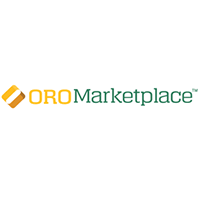Yes, online marketplace software can be accessed from multiple devices and platforms. As technology advances, so does the accessibility of online marketplace software. Whether you're using a laptop, smartphone, or tablet, you can access your marketplace from any device. Furthermore, these platforms are accessible on a variety of operating systems, including Windows, iOS, and Android, making it easy for both buyers and sellers to use.
List of 20 Best Online Marketplace Software
Triocommerce is a e-commerce solution for your business. Our customizable platforms are designed to cater to businesses of all sizes, providing seamless online shopping experiences and driving strong digital growth. Our trusted expertise ensures that...Read More Triocommerce
Fantacy is a SaaP solution developed by the Appkodes team, offering a wide array of services ranging from conceptualization and assessment to execution and promotion. Our platform places significant emphasis on SEO project supervision, Web3 Dapp esta...Read More Fantacy
Kreezalid, the ideal no-code platform for effortlessly building and expanding your online marketplace. With its completely customizable templates, seamless integration of payment methods, and advanced API, Kreezalid caters to businesses of all sizes,...Read More Kreezalid
Onport, the go-to solution for ecommerce businesses seeking to streamline their growth and enter multi-vendor marketplaces effortlessly. Our automated platform guarantees top-notch performance, empowering effective and efficient scaling. Bid farewell...Read More Onport
ShelfTrend is a eBay analytics solution designed for online merchants. With powerful features and user-friendly dashboards, it allows sellers to make informed choices, monitor competitors, and uncover profitable product opportunities. Stay ahead in t...Read More ShelfTrend
StreamBiz solution for your live streaming requirements. Our platform, taking cues from Periscope, provides a smooth way to share your live video content with a global audience. Equipped with cutting-edge features and a user-friendly interface, Strea...Read More StreamBiz
MarketPlus is solution for B2B websites. Our advanced online software offers a range of tools to simplify your B2B operations and streamline your business flow. With MarketPlus, you can easily manage every aspect of your business, thanks to its fully...Read More MarketPlus
Uppler solution for developing B2B marketplaces. Used and trusted by leading organizations across the globe, this platform streamlines the buying and selling process for businesses and professional buyers. Seamlessly handle transactions and communica...Read More Uppler - B2B marketplace
Torry Harris Marketplace is a solution for powering, scaling, strategizing, designing, developing, and maintaining your digital ecosystem. Our innovative no-code platform empowers you to succeed in the digital economy while seamlessly catering to you...Read More Torry Harris Marketplace
Pinlearn is a versatile e-learning platform that offers custom solutions to meet your specific requirements. With capabilities such as course monetization, live one-on-one and group classes, and complete ownership of the open source code, Pinlearn em...Read More Pinlearn
our software platform, with a wide array of over 800,000 products and a goal of reaching 5,000,000 by the end of the year. No more tedious trips to the hardware store, as our direct delivery service brings all your necessary supplies straight to your...Read More eCommerce website
Marketplacer is a platform that enables businesses to effortlessly broaden their product selection, collaborate with high-performing global vendors, and enhance sales. Our platform seamlessly integrates with various systems, providing access to new o...Read More Marketplacer
OroMarketplace is a marketplace management solution designed to assist B2B companies in selling goods, services, and bookings. With OroMarketplace, you can easily establish and enhance your vendor partnerships while simplifying the selling process, e...Read More OroMarketplace
Mirakl is a highly reliable SaaS platform that empowers businesses to easily grow their online marketplaces. Our cutting-edge features for marketplace management, dropshipping, and retail media streamline integration and propel growth. As a top-rated...Read More Mirakl
Rocket Bazaar Marketplace is a online business platform designed to handle multiple sellers and suppliers. Our marketplace solution comes equipped with advanced eCommerce capabilities and expert support, making it easy to create a online marketplace...Read More Rocket Bazaar Marketplace
My Marketplace Builder is the premier platform for effortlessly creating and customizing your own marketplace. Trusted by small businesses and big corporations alike, it offers a wide range of tools and features to ensure your success. Its intuitive...Read More My Marketplace Builder
Publicfast is marketing platform that connects brands with renowned influencers from around the world. Our carefully curated network includes over 50,000 top influencers from popular social media platforms such as Facebook, Instagram, YouTube, Twitte...Read More Publicfast
Crackerjack is a online service marketplace designed to simplify the process of connecting customers with skilled service providers. Our platform boasts a user-friendly interface and a wide range of services, from home improvement and IT to design, p...Read More Crackerjack
Apphitect Magento is solution for creating a multi-vendor eCommerce platform like Amazon or eBay. With its advanced features and user-friendly interface, Apphitect Marketplace for Magento 2 empowers you to quickly launch your own marketplace website...Read More Apphitect Magento
Modalyst is an advanced and user-friendly drop shipping platform built specifically for e-commerce retailers and dropshipping enterprises. Our application simplifies the task of discovering and procuring top-notch products for your online store. With...Read More Modalyst
Learn More About Online Marketplace Software
- What Is Online Marketplace Software?
- What Are The Recent Trends In Online Marketplace Software?
- Benefits Of Using Online Marketplace Software
- Important Factors To Consider While Purchasing Online Marketplace Software?
- What Are The Key Features To Look For In Online Marketplace Software?
- Why Do Businesses Need Online Marketplace Software?
- How Much Time Is Required To Implement Online Marketplace Software?
- What Is The Level Of Customization Available In Online Marketplace Software?
- Which Industries Can Benefit The Most From Online Marketplace Software?
- Conclusion
What Is Online Marketplace Software?
Online Marketplace Software is a digital platform that allows buyers and sellers to connect and make transactions for goods or services. It functions as a virtual marketplace, allowing multiple sellers to sell their products or services while clients explore and purchase from a single website. This software allows retailers to have an online storefront without the burden of creating and maintaining a full e-commerce website.
It also offers buyers a convenient and diverse shopping experience by allowing them to compare prices and offerings from multiple sellers in one location. Typical features of online marketplace software include product listings and descriptions, payment integration, inventory management, order tracking, and customer service. Some complex software may also provide marketing tools, analytics, and customization choices to help improve the buying and selling experience.
For business owners and entrepreneurs, investing in Online Marketplace Software can be a low-cost and efficient approach to enter the e-commerce sector. It eliminates the need for a physical shop, lowers inventory and shipping expenses, and enables scalability as the firm grows. When making a purchase, you should assess the software's features, suitability with your business model, customer service, pricing, and security measures. With so many options available, it is critical to select a dependable and recognized Online Marketplace Software that is tailored to your specific business requirements.
What Are The Recent Trends In Online Marketplace Software?
Online marketplace software has evolved greatly over the years, with new changes having a big impact on how these platforms function. As a buyer seeking for the ideal online marketplace software, it is critical to stay current on these developments in order to make an informed purchase.
Here are some of the recent advancements in online marketplace software that you should be aware of.
1. Mobile Optimization: As mobile devices are increasingly used for online buying, marketplace software must be mobile-optimized. This enables purchasers to explore, search, and buy products smoothly, resulting in a better user experience. As a result, while choosing an online marketplace software, it is critical to verify that it is mobile friendly.
2. Integration With Social Media: Social media has become an essential part of our daily lives, and it is also playing an important role in online purchasing. Many online marketplace software now integrates with social media channels, allowing sellers to reach a larger audience and consumers to find things more simply.
3. Artificial Intelligence (AI): AI is altering how online marketplace software works. These platforms employ AI to tailor product recommendations for each customer, making their shopping experience more convenient and enjoyable. In addition, AI-powered chatbots are being used to provide effective customer service, swiftly responding to any concerns or requests.
4. User-Generated Content: User-generated content, such as reviews, ratings, and testimonials, is more important in purchasers' decision-making processes. As a result, many online marketplace software now includes features that allow merchants to display user-generated material on their product sites, thereby increasing confidence and credibility among prospective customers.
5. Multilingual Support: As online marketplaces have grown in popularity around the world, marketplace software has become increasingly important in supporting many languages. This allows vendors to reach a larger audience, which leads to more sales.
6. Integration With Analytics Tools: Data is critical for all businesses, including online markets. Marketplace software, when integrated with analytics tools, can give merchants with useful insights into sales, customer behavior, and industry trends. This data can help sellers make more informed decisions to better their business.
Benefits Of Using Online Marketplace Software
Online marketplace software is a powerful tool that enables businesses to set up their own digital marketplace, connecting customers and merchants from all over the world. This software has grown in popularity in recent years, driven by the advent of e-commerce and the requirement for firms to have a strong online presence.
In this buyer's guide, we'll look at the benefits of adopting online marketplace software and explain why it's such an important investment for your business.
1. Increased Reach And Visibility: One of the most significant advantages of using online marketplace software is the potential to reach a larger audience. Unlike a traditional business, an online marketplace enables you to offer your items or services to customers all over the world. This allows your business to expand and enter new areas, expanding its reach and visibility.
2. Cost Savings: Rent, utilities, and upkeep are some of the costs associated with opening and running a physical store. However, because everything is done remotely, using online marketplace software allows you to save money on these fees. The program also simplifies the selling process, eliminating the need for human work and saving you time and money.
3. Easy Setup And Management: Another advantage of using online marketplace software is its ease of installation and management. The program is intended to be user-friendly, with step-by-step instructions to walk you through the process of creating your marketplace. It also includes facilities for organizing products, orders, and payments, making things easier for both vendors and customers.
4. A Diverse Product Range: With an online marketplace, you may provide a vast range of products from numerous sellers, providing your clients with a comprehensive selection to pick from. This not only attracts more buyers to your marketplace, but also promotes healthy competition among vendors, resulting in increased innovation and product quality.
5. Lower The Risk: Investing in online marketplace software has lesser risks than opening a physical business. The initial cost of launching an online marketplace is substantially lower, and there are no long-term contractual obligations or hazards connected with a physical store lease.
6. Data-Driven Insights: Online marketplace software provides data-driven insights to help you make smart business decisions. You can use sales, customer behavior, and other data to improve your marketplace and expand your business.
Important Factors To Consider While Purchasing Online Marketplace Software?
When it comes to acquiring online marketplace software, there are a few key elements to consider before making a purchase. As a buyer, you must first understand your individual business objectives and goals in order to discover the finest software solution for your online marketplace.
To help you make the best decision, here are some crucial considerations to consider when selecting online marketplace software.
1. Scalability: Scalability is one of the most important considerations when selecting online marketplace software. Your business's goals and demands may change over time, and your software should be able to adapt and develop with it. Make sure to select software that is scalable and supports your future growth goals.
2. Flexibility: In addition to scalability, flexibility is critical while selecting online marketplace software. You may have distinct company needs or distinguishing traits that are critical to your market. Look for software that can be customized and has flexible features to match your business requirements.
3. User-Friendly Interface: The program you select should have an intuitive interface that is simple to navigate and utilize. This is especially critical if your marketplace contains a large number of users or vendors. A simple and easy design will save you time and money, allowing you to concentrate on expanding your business.
4. Security: Security is an important factor to consider when selecting online marketplace software. With sensitive data and financial transactions involved, it is critical that the program has strong security mechanisms in place. Look for encryption and SSL certifications to secure the security of your marketplace.
5. Payment Gateway Integration: A secure and efficient payment gateway is essential for any online marketplace. When selecting a program, ensure that it offers integration with common payment gateways so that your consumers may have a simple and safe payment experience.
6. Customer Support: Technical troubles and challenges are unavoidable when operating an online marketplace. As a result, it is critical to acquire software that provides dependable and responsive customer assistance. Look for software that offers 24/7 customer assistance via email, phone, or live chat.
7. Price: The pricing of the program is also an important issue to consider. Make careful to purchase software that is within your budget while also providing the features and functionality you require. Compare the costs and features of several software packages to determine the best fit for your company.
What Are The Key Features To Look For In Online Marketplace Software?
When it comes to selecting Online Marketplace Software, there are several important factors to consider. These elements can make or break your marketplace ownership experience, as well as your platform's overall success.
As a result, it is critical to thoroughly assess these characteristics before making a decision.
1. User-Friendly Interface: The first characteristic to look for in Online Marketplace Software is a user-friendly interface. This means that the software should be simple and straightforward to use for both buyers and dealers. A confusing and cluttered layout may deter customers from participating with your marketplace, resulting in a loss in sales and revenues.
2. Customization: Each marketplace has its own distinctive identity and specifications. As a result, your chosen software should allow for customisation to reflect your brand and personalize the platform to your specific requirements. This includes the opportunity to add your own logos, colors, and fonts, as well as control over the layout and style of your marketplace.
3. Multi-Vendor Support: A decent online marketplace software should support many suppliers, allowing you to provide a wide variety of items and services on your platform. Dashboards, messaging, and inventory management should all be included as features for managing and communicating with these providers.
4. Mobile Responsiveness: With the increased use of mobile devices, it is critical that your marketplace be mobile-friendly. Look for software that is responsive and suited for different screen sizes and devices to provide a consistent user experience for both buyers and sellers.
5. Payment Gateway Integration: One of the most important aspects of any online marketplace is the ability to safely handle payments. Your chosen software should work with multiple payment channels, making it easy for buyers to make purchases while also maintaining the security and protection of their personal and financial information.
6. Customer Assistance: Technical issues may develop with any product, therefore good customer assistance is crucial. Look for software that offers 24/7 assistance via phone, email, and live chat to ensure that any issues are resolved quickly and efficiently.
7. Analytics And Reporting: To make informed decisions and analyze your marketplace's success, you must have access to analytics and reporting tools. The software should have tools like sales statistics, customer insights, and site traffic analysis to assist you in identifying patterns, gaps, and opportunities for improvement.
Why Do Businesses Need Online Marketplace Software?
Businesses now operate in a highly competitive market, continuously attempting to broaden their reach and consumer base. In this digital age, having an online presence is critical for businesses to survive and thrive. Here's where online marketplace software comes into play. Online marketplace software is a platform that allows businesses to construct an online marketplace where they may sell their products or services, much like Amazon or Etsy. It includes a profusion of capabilities that can help businesses in a variety of ways.
In this buyer's guide, we'll go over why businesses need online marketplace software and how it may help them expand and succeed.
1. Reach A Larger Audience: One of the key reasons that businesses use online marketplace software is to broaden their reach. Businesses can reach a global audience with an online marketplace, as opposed to a physical store, which is limited by geography. This enables firms to expand into new areas and attract clients from all around the world.
2. Increase Sales And Revenue: With the growing number of online buyers, having an online marketplace allows businesses to boost their sales and revenue. Online marketplace software enables businesses to offer their products or services at any time of day or night, regardless of location. This not only expands their customer base, but also raises their revenue.
3. Cost-Effective: Traditional brick-and-mortar establishments necessitate large costs in terms of rent, maintenance, and employee compensation. On the other hand, online marketplace software eliminates the necessity for a physical store, which lowers costs. It also allows businesses to save money on transportation and inventory costs by shipping products directly from the source to the customer.
4. Ease Of Management: Managing an online marketplace is significantly easier than managing a physical store. Online marketplace software offers businesses a consolidated platform for managing goods, orders, payments, and customer information. This streamlines the entire process, making it more efficient and time-saving.
5. Customer Insights: Online marketplace software has comprehensive analytics and reporting tools that help firms understand customer behavior and shopping habits. This allows firms to better understand their clients and customize marketing campaigns accordingly, resulting in greater sales and customer happiness.
6. Brand Awareness: Having an online marketplace gives businesses another platform to promote their brand and products. This not only raises brand awareness but also contributes to the development of a brand's reputation. Online marketplace software also enables businesses to promote their brand and products through a variety of marketing and advertising techniques.
How Much Time Is Required To Implement Online Marketplace Software?
The implementation time for online marketplace software can vary based on a number of factors, including the size and complexity of your business, the functionality and customization choices you desire, and your team's previous expertise with similar platforms. However, completely implementing an online marketplace software might take anything between a few weeks and several months.
The first stage in the installation process is to select software that is appropriate for your business goals and requirements. This requires extensive study, demo sessions, and talks with the program provider. After you've decided on the program, the next step is to set up your marketplace domain, design the layout, and configure the appropriate settings.
The time required for these preliminary procedures might range from a few days to a few weeks, depending on your technical skills and the intricacy of your intended marketplace design. Furthermore, if you require any additional features or changes, the implementation process may take longer. Data transfer is another critical step in establishing online marketplace software.
If you're switching from an existing platform, you'll need to move your data, such as product listings, customer information, and other settings, to the new program. This procedure can take anywhere from a few days to a few weeks, depending on the size and complexity of your data set. The next step after completing the data migration is to properly test the system.
This includes looking for problems or errors, confirming that all features perform as expected, and making any necessary changes to the design and settings. This testing phase might last from a few days to a few weeks, depending on the size and complexity of your marketplace. Finally, there will be a training period in which you and your staff will need to become acquainted with the software and its features. The time necessary for training will be determined by your team's technical abilities and the software's complexity.
What Is The Level Of Customization Available In Online Marketplace Software?
When it comes to selecting the best online marketplace software for your business, one of the most important considerations is the level of customisation offered. This refers to the flexibility to personalize the platform to your own business requirements and branding. The extent of customisation varies substantially across different online marketplace software suppliers. Some may provide a simple, one-size-fits-all platform, but others may provide a fully configurable solution that can be adjusted to your individual needs. So, how can you determine the level of customisation offered by online marketplace software?
Here are some crucial characteristics and elements to consider:
1. Branding: A decent online marketplace software should allow you to personalize your platform with your company logo, colors, and design components. This will allow you to establish a consistent and professional internet presence for your company.
2. User Interface: The software should have an easy-to-customize interface that reflects your brand's appearance and feel. This include the navigation menu, homepage layout, and other design aspects.
3. Personalization: The capacity to tailor the user experience is another significant part of customisation. Personalised suggestions, targeted marketing efforts, and custom search filters are all examples of such services.
4. Product Listings: The platform should provide flexible product listings with multiple colors, sizes, and variations. It should also allow you to create custom fields and attributes for your listings.
5. Payment Options: The program should offer a range of payment methods and allow you to customize fees and commissions. This will provide you greater control over the financial aspects of your marketplace.
6. Shipping And Fulfillment: If your company sells tangible products, the software should include bespoke shipping and fulfillment choices. This can include determining shipping rates, providing free shipping, and collaborating with prominent shipping companies.
7. Mobile Responsiveness: In today's mobile-first environment, it's critical that your online marketplace be mobile friendly. This means that the platform should automatically adjust to multiple screen sizes to ensure excellent viewing on smartphones and tablets.
8. Third-Party Integrations: Integrating with third-party programs and services can significantly expand your online marketplace's customisation options. This may involve integrations with accounting software, marketing platforms, and other systems.
Which Industries Can Benefit The Most From Online Marketplace Software?
Online marketplace software has become an indispensable resource for organizations of all sizes and industries. Its various features and capabilities make it an invaluable asset to many firms, but particular industries stand to benefit the most from its technology.
In this buyer's guide, we'll look at which sectors might benefit from online marketplace software to improve their business performance.
1. E-commerce: Online marketplace software is well-suited to the e-commerce business. Managing an e-commerce platform can be difficult due to the sheer number of products and vendors. Online marketplace software streamlines the entire process by allowing different vendors to display their products on a single platform, making the purchasing and selling experience easier for buyers. It also provides inventory management, order fulfillment, and secure payment processing, making it an essential tool for e-commerce enterprises.
2. Service-Based Businesses: Freelancers, consultants, and professionals can all benefit from online marketplace software. It enables them to offer their services to a larger audience and engage with prospective clients. The software's scheduling and booking functions help service providers manage their appointments and availability. Service-based firms can use online marketplace software to improve their operations and expand their consumer base.
3. Hospitality Industry: Hotels, vacation rentals, and event venues can all benefit from online marketplace software. It enables them to list their homes and services on a single platform, making it easier for customers to identify and book lodging for their travel needs. The program also contains features like as reservation management, internet bookings, and reviews and ratings, ensuring a smooth experience for both hosts and visitors.
4. Retail Industry: Online marketplace software can benefit both small and large organizations. It provides a low-cost option to promote and sell their items to a global audience. The software's analytics and reporting tools give businesses significant insights into customer behavior and purchasing trends, allowing them to make data-driven decisions. With the rise of online buying, having an online marketplace presence is critical to success in the retail sector.
5. B2B Industries: The B2B industry can also benefit from the potential of online marketplace software. It enables firms to interact and transact with one another, hence streamlining the procurement process. The software's management functions, such as invoicing and order tracking, make the B2B buying and selling process easier. B2B enterprises can use online marketplace software to extend their network and enhance their profits.
Conclusion
In conclusion, selecting online marketplace software can be a critical decision for your company. Before making a final decision, you should thoroughly consider your needs and priorities. Consider the features and functionalities provided by different platforms, such as customisation, payment methods, and customer service. Additionally, consider the software's scalability and pricing models to verify that it can adapt to your company's expansion without incurring exorbitant costs.
A thorough analysis of customer reviews and ratings can also provide useful information about the software's dependability and performance. Furthermore, don't be afraid to take advantage of trial periods or demo versions provided by software vendors to fully evaluate the platform before making a purchase. This allows you to test the user interface, integration capabilities, and overall user experience.
Finally, choose software that is consistent with your long-term aims and values. Consider the company's reputation, past performance, and commitment to customer happiness. Keeping these things in mind allows you to make an informed decision and select an online marketplace software that will properly support and boost your business operations.
Online Marketplace Software FAQ's
Can Online Marketplace Software Be Accessed Across Multiple Devices And Platforms?
Is Online Marketplace Software Future-Proof And Adaptable To Emerging Technologies Like AI, Blockchain Or IoT?
Yes, most online marketplace software is intended to be future-proof and adaptable to new technology. Because the marketplace business is continually growing, these platforms must include cutting-edge technologies in order to remain competitive.
With the rise of AI, blockchain, and IoT, many marketplace software vendors are already adopting these capabilities to enhance the user experience and streamline operations. Furthermore, continuous upgrades and technological developments keep these platforms current and efficient in a rapidly changing market.
Is There A Free Trial Offered To Assess Online Marketplace Software Before Committing?
Yes, most online marketplace software vendors provide a free trial period in which potential users can test out their features and functionalities before committing to a paid subscription. This allows organizations to determine whether the software fulfills their specific requirements and is user-friendly.
It also allows them to compare various software solutions and make an informed choice. Furthermore, some providers offer free trials with limited functions, whereas others provide complete access to all features.
Does Online Marketplace Software Offer Data Security Features And Meet Regulatory Compliance Standards?
Yes, most online marketplace software suppliers provide powerful and advanced data security safeguards to protect critical buyer and seller information. These features include SSL encryption, user authentication, secure payment gateways, and automatic data backups.
Furthermore, respectable marketplace software suppliers guarantee that their platform complies with all regulatory compliance standards, such as GDPR and PCI-DSS, to provide a secure and trustworthy environment for all users.
Can Online Marketplace Software Integrate Seamlessly With Existing Tools And Platforms?
Yes, online marketplace software is intended to work easily alongside existing tools and platforms. Its flexible and configurable features allow it to quickly integrate with your favorite third-party solutions, such as payment gateways, shipping providers, and analytics tools.
This guarantees that operations run smoothly and efficiently, while also providing a consistent user experience for both sellers and consumers. Furthermore, most online marketplace software has APIs for simple integration with other systems.






















